Effects of a nitrogen-based supplement on intake, live weight and body energy reserves in breeding <i>Bos indicus</i> cross cows
DOI:
https://doi.org/10.17138/tgft(9)70-80Abstract
Breeding cows grazing seasonally dry rangelands usually lose substantial live weight (LW) during the dry season, when in late pregnancy. An experiment investigated the effects of feeding a N-based supplement to cows in late pregnancy on voluntary intake, total live weight (T-LW), body condition score (CS) and estimated body net energy content (Body-NE), as well as carry-over effects during lactation. In Phase A for 139 days from mid-pregnancy, mature Bos indicus cross breeders [initially 438 kg T-LW and 5.7 CS units (9-point scale)] were fed in pens on low quality tropical grass hay alone (Control) or with a N supplement (Supplemented). Most (17/22) of the cows calved during this interval. Voluntary hay intake averaged 6.74 g DM/kg T-LW/d in Control cows, and was increased by 35% (P<0.001) when supplement was fed. As a result, feeding supplement reduced loss in conceptus-free live weight (CF-LW) by 30% (from 1.11 kg/d to 0.78 kg/d; P<0.001) and in Body-NE by 20% (from 26.6 to 21.2 MJ NE/d; P = 0.007). Control cows mobilized 24% of maternal LW and 32% of body energy when fed low quality hay during late pregnancy, and these losses were substantially reduced when a N-based supplement was fed. During Phase B, when the lactating cows with their calves grazed a high quality rainy season grass-Stylosanthes pasture, the previously supplemented cows produced more milk (P = 0.065) and their calves grew faster (P = 0.077) in early lactation than Control cows. In addition, during early lactation Control cows exhibited compensatory LW gain relative to the Supplemented cows (0.80 vs. 0.43 kg/d, respectively; P<0.001) and there was no discernable weight difference between the groups by 205 days of lactation. In conclusion the losses in LW and body energy reserves by late pregnant cows fed low quality tropical grass hay were substantially reduced by a N supplement, but the differences were not maintained when the cows subsequently grazed high quality pasture.
Author Biography
Rob M. Dixon, Queensland Alliance for Agriculture and Food Innovation (QAAFI), Centre for Animal Science, The University of Queensland, Rockhampton, QLD, Australia.
QAAFI,
Centre for Animal Science,
Senior Research Fellow




